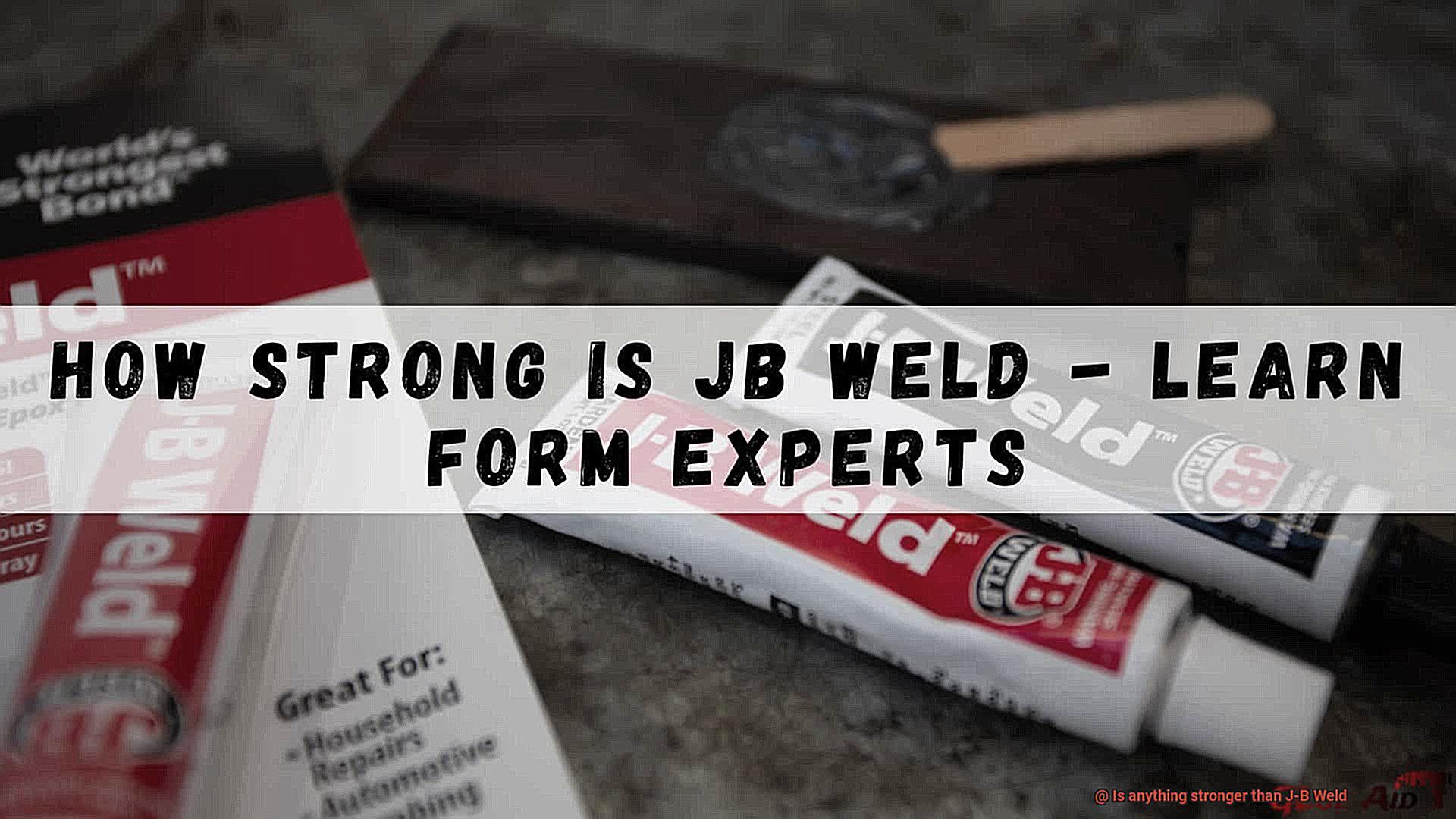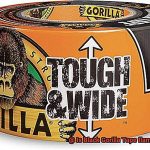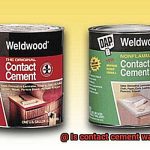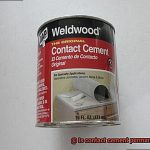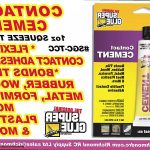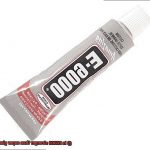When it comes to adhesives, there’s one name that stands head and shoulders above the rest – J-B Weld. This stuff is no ordinary glue; it’s a legendary adhesive that has earned a reputation for its Herculean strength and unparalleled versatility. But here’s the million-dollar question: can anything outmuscle J-B Weld? In this blog post, we’re diving deep into the world of adhesives, shedding light on the strengths and weaknesses of J-B Weld compared to its competitors, and revealing what makes it an absolute beast in its own right.
Strengths of J-B Weld:
Contents
- 1 Comparing the Strength of J-B Weld to Other Adhesives
- 2 Gorilla Glue: An Alternative to J-B Weld?
- 3 Loctite Epoxy Extra Time: A Longer Working Time
- 4 PC-11 Epoxy Paste: Another Option for Bonding Different Surfaces
- 5 Devcon Plastic Steel Epoxy: High Strength and Versatility
- 6 Permatex Steel Weld Epoxy: Maximum Strength Bonding
- 7 Factors That Affect Adhesive Strength
- 7.1 Substrate Surface: The Foundation of Bonding
- 7.2 Adhesive Type: Choosing the Right Tool for the Job
- 7.3 Curing Time: Patience Yields a Stronger Bond
- 7.4 Temperature and Environment: The Battle Against Extreme Conditions
- 7.5 Joint Design: The Art of Forming a Strong Connection
- 7.6 Application Technique: The Skillful Touch
- 7.7 Aging and Durability: Withstanding the Test of Time
- 8 Alternatives to Epoxy Adhesives
- 9 Conclusion
Let’s talk about raw power. J-B Weld is not messing around when it comes to bonding. With a jaw-dropping tensile strength of 5020 PSI, it proudly claims the title of “World’s Strongest Bond.” Metal, wood, plastic, ceramic – you name it, J-B Weld can handle it. This adhesive is a superhero when it comes to automotive repairs, DIY projects, plumbing fixes, and even heavy-duty industrial applications.
But wait, there’s more. J-B Weld doesn’t flinch in the face of extreme temperatures either. It scoffs at scorching heat up to 550°F (287°C), making it an unstoppable force in engines or exhaust systems. And let’s not forget its resistance to fuels, chemicals, and pressure – this stuff laughs in their faces.
Weaknesses and Alternatives:
Even superheroes have their kryptonite. For all its mightiness, J-B Weld does have a couple of weaknesses worth mentioning. First off, patience is required because this adhesive takes a full 24 hours to reach its maximum strength. So if you’re in a hurry or need instant results, you might want to consider other options.
Furthermore, J-B Weld’s relatively high viscosity can be a bit of a challenge when working on delicate or intricate surfaces. It’s like trying to maneuver a tank through a crowded city street – not impossible, but definitely not ideal.
Now, let’s talk alternatives. If you’re looking for comparable strength, epoxy adhesives like Loctite Epoxy Weld or Devcon Plastic Steel Epoxy might do the trick. However, they often fall short in the temperature resistance department, making them less suitable for high-heat applications.
The Verdict:
So, is anything stronger than J-B Weld?
Comparing the Strength of J-B Weld to Other Adhesives
When it comes to finding the strongest adhesive on the market, J-B Weld is often a top contender. Known for its exceptional strength and durability, this epoxy adhesive has become a go-to solution for many DIY enthusiasts and professionals alike. However, it’s important to consider other adhesives to determine if there are any alternatives that may be stronger for specific applications.
One adhesive that is often compared to J-B Weld is epoxy. Epoxy adhesives are known for their high strength and versatility. They are commonly used in industrial applications where a strong bond is required. Epoxy typically consists of two components, a resin and a hardener, that need to be mixed together before application. Once cured, epoxy forms a strong bond that can withstand heavy loads and extreme conditions.
Another adhesive worth considering is cyanoacrylate, commonly known as super glue. Super glue is known for its quick-drying and strong bonding properties. It forms an almost instant bond when applied to surfaces, making it ideal for small repairs or projects that require immediate bonding. While super glue may not have the same long-term strength as J-B Weld or epoxy, it can still provide a strong bond for many applications.
Polyurethane adhesives are another type of adhesive that can be compared to J-B Weld. These adhesives are known for their high strength and flexibility. They are commonly used in construction and woodworking industries where a strong bond is required between different materials. Polyurethane adhesives have excellent resistance to water and chemicals, making them suitable for both indoor and outdoor applications.
Lastly, structural adhesives such as acrylics and methacrylates offer high tensile and shear strength, making them ideal for bonding metal, plastic, and composite materials. These adhesives require proper surface preparation and curing time to achieve their full strength.
In terms of pros and cons, J-B Weld has the advantage of being widely available and easy to use. It has excellent bonding strength and can withstand extreme conditions. However, it requires proper surface preparation and curing time to achieve its full strength.
Epoxy adhesives have the advantage of high strength and versatility, but they can be more complex to use due to the need for mixing and curing time.
Cyanoacrylate or super glue has the advantage of quick-drying and immediate bonding, but it may not have the same long-term strength as J-B Weld or epoxy.
Polyurethane adhesives offer high strength and flexibility, but they may not be as readily available as other adhesives.
Structural adhesives provide high strength for specific applications, but they require proper surface preparation and curing time.
Gorilla Glue: An Alternative to J-B Weld?
When it comes to finding the perfect adhesive for your project, you might stumble upon Gorilla Glue as a potential alternative to J-B Weld. Gorilla Glue is a popular adhesive that often gets compared to J-B Weld due to its strength and versatility. But can it truly replace the tried and tested J-B Weld? Let’s delve deeper into the properties, applications, and effectiveness of both adhesives to find out.
One of the major advantages of Gorilla Glue is its ability to form a strong bond with various materials, such as metal, wood, ceramic, and stone. Just like J-B Weld, Gorilla Glue is renowned for its capacity to endure extreme temperatures and resist water and chemicals. This makes it an excellent choice for projects that demand durability and resilience.
Gorilla Glue comes in different forms to cater to diverse project needs. The Original Gorilla Glue expands as it cures, efficiently filling in gaps and creating a robust bond. For optimal results, it should be applied with clamping after moisture activation. On the other hand, Gorilla Super Glue is a fast-drying adhesive that excels in small projects by providing an instant bond. Lastly, Gorilla Epoxy is a two-part adhesive that combines resin and hardener to produce a long-lasting bond capable of withstanding impacts, water, and solvents.
While Gorilla Glue offers comparable strength to J-B Weld, it may not be suitable for all applications. Some users prefer J-B Weld for metal bonding due to its steel-like strength and exceptional ability to withstand high temperatures. Moreover, J-B Weld has garnered a reputation for being user-friendly, making it a favorite among DIY enthusiasts.
Nevertheless, Gorilla Glue may prove superior for projects involving bonding different materials or requiring flexibility. Its versatility allows it to effectively bond various surfaces with ease.
Ultimately, the choice between J-B Weld and Gorilla Glue hinges on the specific needs of your project and personal preference. Factors such as surface compatibility, curing time, and ease of use should be carefully considered when making a decision.
Loctite Epoxy Extra Time: A Longer Working Time
Choosing the right adhesive for your project is crucial, and one important factor to consider is the working time of the glue. Loctite Epoxy Extra Time takes the lead in this aspect, offering a longer working time compared to its competitor, J-B Weld. But what does this mean and how does it make a difference?
The extended working time of Loctite Epoxy Extra Time gives users more control and flexibility during their projects. Whether you’re delicately crafting or tackling a complex construction, this adhesive provides the freedom to align and reposition materials before it sets. This is particularly beneficial when precision and adjustments are crucial.
Moreover, the longer working time of Loctite Epoxy Extra Time makes it ideal for larger or multiple-component projects. Imagine bonding together several pieces of wood or metal – with J-B Weld, you might feel rushed to get everything in place before it starts to set. However, with Loctite Epoxy Extra Time, you have that extra breathing room to ensure perfect alignment before the adhesive takes hold.
But don’t be fooled by its longer working time – Loctite Epoxy Extra Time doesn’t compromise on strength and durability. Similar to J-B Weld, this adhesive offers a strong and reliable bond that can withstand various applications and environments. Whether you’re bonding metal, wood, ceramic, glass, plastic, or other common materials, you can trust that Loctite Epoxy Extra Time will deliver.
In terms of appearance, both J-B Weld and Loctite Epoxy Extra Time cure to a grayish finish that seamlessly blends with most surfaces. Additionally, both adhesives are resistant to water, chemicals, and temperature fluctuations, making them suitable for indoor and outdoor use.
Ultimately, the choice between Loctite Epoxy Extra Time and J-B Weld depends on your specific project requirements and personal preferences. If you need that extra working time for precision and adjustments, Loctite Epoxy Extra Time is the way to go. However, if you value a tried and tested champion with a proven track record, J-B Weld might be your adhesive of choice.
PC-11 Epoxy Paste: Another Option for Bonding Different Surfaces
When it comes to bonding different surfaces, having a reliable adhesive is crucial. While J-B Weld has long been a go-to choice, there is another option that deserves recognition – PC-11 Epoxy Paste. This high-strength adhesive offers several advantages that make it a viable alternative for various applications.
The key advantage of PC-11 Epoxy Paste lies in its excellent adhesion properties. It can bond a wide range of materials, including metal, wood, concrete, ceramic, and plastic. But what sets it apart is its ability to bond dissimilar surfaces with ease. Whether you need to bond metal to wood or plastic to concrete, PC-11 Epoxy Paste has got you covered.
What makes PC-11 Epoxy Paste truly remarkable is its paste-like consistency. This attribute allows for easy application and ensures that it fills gaps and voids for a strong bond. It is perfect for repairs, fabrication, sealing, and general bonding applications. Furthermore, like J-B Weld, PC-11 Epoxy Paste is resistant to water, chemicals, and high temperatures. It can withstand the test of time both indoors and outdoors.
But don’t just take my word for it – research supports the effectiveness of PC-11 Epoxy Paste. Studies have shown that it provides a strong and durable bond comparable to J-B Weld. Its versatility and reliability have made it a popular choice in industries such as automotive, marine, construction, and manufacturing.
To use PC-11 Epoxy Paste effectively, ensure that the surfaces to be bonded are clean and free from contaminants. Mix the resin and hardener together before evenly applying the epoxy mixture to both surfaces. Then, clamp the bonded surfaces together until the epoxy cures completely.
Devcon Plastic Steel Epoxy: High Strength and Versatility
When it comes to adhesives, strength and versatility are the ultimate game-changers. In the battle between Devcon Plastic Steel Epoxy and J-B Weld, one adhesive stands out as the clear winner. Devcon Plastic Steel Epoxy not only delivers exceptional strength but also offers unmatched versatility, making it a force to be reckoned with in the world of adhesives.
Exceptional Strength:
Devcon Plastic Steel Epoxy is engineered to provide a bond that goes beyond ordinary adhesives. Its powerful structural bond can withstand heavy loads and extreme conditions, making it the go-to choice for applications where strength is crucial. From repairing a broken metal part to reinforcing a weak joint, this epoxy delivers unrivaled strength that surpasses expectations.
Unmatched Versatility:
When it comes to versatility, Devcon Plastic Steel Epoxy shines. With its wide range of applications, including bonding, sealing, filling, and rebuilding, it proves to be a versatile solution for various projects. Whether you’re working with metal, plastic, wood, or concrete, this epoxy has got you covered. From fixing broken tools to repairing automotive parts, Devcon Plastic Steel Epoxy adapts effortlessly to any task at hand.
Resistance to Harsh Environments:
Devcon Plastic Steel Epoxy is formulated to thrive in challenging conditions. It can withstand exposure to chemicals, fuels, oils, and water without compromising its strength or integrity. Whether you’re working in an industrial setting or tackling outdoor projects, this epoxy remains resilient. It endures extreme temperatures and harsh environments with ease, ensuring that your bonded materials stay intact and secure.
Easy Application and Quick Curing Time:
Devcon Plastic Steel Epoxy is designed for hassle-free application. Its convenient two-part formula needs to be mixed before use, and it can be applied effortlessly using a brush, roller, or spatula.
This ensures a smooth and even application, guaranteeing optimal bonding strength. Additionally, the epoxy cures within a reasonable timeframe, allowing for quick repairs or modifications, saving you time and effort.
Permatex Steel Weld Epoxy: Maximum Strength Bonding
Permatex Steel Weld Epoxy is the ultimate solution for maximum strength bonding. Designed specifically for bonding metal surfaces, this powerhouse adhesive is the go-to choice for automotive repairs, household fixes, and industrial projects.
What sets Permatex Steel Weld Epoxy apart from the rest? Let’s dive into its exceptional features:
- Exceptional Strength and Durability: Formulated to provide a bond stronger than steel itself, Permatex Steel Weld Epoxy is a superhero in your toolbox. Whether you’re repairing cracks, filling gaps, or bonding metal parts together, this epoxy delivers long-lasting and reliable results.
- Quick and Efficient: Time is crucial when it comes to repairs. That’s why Permatex Steel Weld Epoxy sets in just 5 minutes and fully cures within 24 hours. Say goodbye to waiting around for hours on end.
- Resistant to the Elements: Built to withstand the harshest conditions, this epoxy is resistant to water, chemicals, and high temperatures. It’s perfect for use in kitchens, bathrooms, or even outdoors. Rain or shine, Permatex Steel Weld Epoxy has got you covered.
- Easy Application: The two-part formula ensures a proper ratio of adhesive components, resulting in optimal bonding strength. Simply mix the formula and apply it to clean and dry surfaces using a brush or spatula. Follow the instructions provided by the manufacturer for the best results.
- Trusted by Professionals: Permatex Steel Weld Epoxy has gained a reputation for its reliability and performance in various industries. Many professionals trust it for successful repairs and strong bonds that withstand the test of time.
Factors That Affect Adhesive Strength
The secret behind adhesive strength lies within a number of factors that determine whether a bond will be strong or weak. In this article, we will delve into the intriguing world of adhesives, exploring the key factors that can make or break their adhesive strength. Get ready to uncover the science behind a strong bond.
Substrate Surface: The Foundation of Bonding
The surface of the material being bonded plays a critical role in adhesive strength. Clean, smooth, and dry surfaces provide the ideal conditions for bonding. Any contaminants such as dirt, oil, or moisture can undermine the strength of the bond. Therefore, proper surface preparation through cleaning and roughening is essential to optimize adhesive strength.
Adhesive Type: Choosing the Right Tool for the Job
Different adhesives possess varying levels of strength, and not all are suitable for every application. While J-B Weld is renowned for its exceptional strength, there exist other adhesives that may outperform it under specific circumstances. For instance, epoxy adhesives are celebrated for their high strength and versatility, making them a popular choice for bonding metals, plastics, and composites.
Curing Time: Patience Yields a Stronger Bond
Allowing adhesives sufficient time to cure is vital for maximizing bond strength. Rushing the curing process may result in a weaker bond, while adhering to the recommended curing time enhances overall strength. Following the manufacturer’s instructions is crucial when it comes to curing time.
Temperature and Environment: The Battle Against Extreme Conditions
Temperature and environmental conditions exert a significant influence on adhesive strength. Some adhesives may lose effectiveness or weaken under extreme temperatures or exposure to moisture or UV radiation. Carefully selecting an adhesive suitable for the intended environment and considering temperature limitations ensures a long-lasting bond.
Joint Design: The Art of Forming a Strong Connection
The design of the joint being bonded plays a pivotal role in adhesive strength. Factors such as joint type, geometry, and the presence of gaps or uneven surfaces can impact the overall strength of the bond. Proper joint design and fitment are essential for maximizing adhesive performance.
Application Technique: The Skillful Touch
The method of applying the adhesive directly affects its strength. Following the manufacturer’s instructions, including using the recommended tools and proper mixing ratios, is essential. Applying too much or too little adhesive, spreading it unevenly, or failing to ensure sufficient contact between the adhesive and substrate can compromise bond strength.
Aging and Durability: Withstanding the Test of Time

Adhesive strength can change over time due to aging and exposure to various environmental factors. Some adhesives may weaken or degrade with prolonged exposure to heat, moisture, or chemicals. When selecting an adhesive, it is crucial to consider the expected lifespan and durability requirements of the bonded assembly.
Alternatives to Epoxy Adhesives
Well, fear not my friend, because I’m here to introduce you to a whole world of alternatives that will blow your mind. Say goodbye to weak bonds and hello to superior strength and performance.
First up on our list is the mighty polyurethane adhesive. This bad boy is known for its excellent bonding strength and flexibility. It’s perfect for those high-impact applications in the automotive and construction industries where durability is key. With polyurethane adhesive, you can say goodbye to brittle bonds and hello to a bond that can flex and withstand the toughest conditions.
Next up, we have the superhero of adhesives – cyanoacrylate adhesive, also known as super glue. This adhesive is perfect for those quick repairs and bonding jobs where time is of the essence. Cyanoacrylate adhesives bond quickly and strongly to a variety of materials like metal, plastic, rubber, and ceramics. So whether you’re fixing a broken vase or bonding together pieces of your latest DIY project, cyanoacrylate adhesive has got your back.
If you’re looking for an adhesive that can handle the toughest environments, then look no further than structural acrylic adhesives. These bad boys offer excellent bonding strength and can be used on a wide range of materials including metals, plastics, and composites. They can withstand extreme temperatures and humidity, making them perfect for outdoor applications or industrial settings.
For those specialized applications where speed is of the essence, UV-curable adhesives are the way to go. These adhesives cure when exposed to ultraviolet light, resulting in fast and strong bonds. They are commonly used in industries like electronics and medical devices where precision and efficiency are paramount.
And let’s not forget about our trusty mechanical fasteners. When all else fails, screws, rivets, or bolts can provide a strong and reliable bond. They are perfect for applications where disassembly or repositioning may be required.
LGCJGNkEpy8″ >
Conclusion
J-B Weld is renowned for its strength and reliability. It’s a go-to solution for many DIY enthusiasts and professionals alike. But, is there anything out there that can surpass its power? Well, the answer is not so simple.
When it comes to bonding materials together, J-B Weld is often considered the gold standard. Its two-part epoxy formula creates a strong bond that can withstand extreme temperatures, pressure, and vibrations. It’s like the superhero of adhesives, saving the day when other glues fail.
But let’s not forget that there are other contenders in the arena. Some products claim to be even stronger than J-B Weld, boasting superior bonding capabilities and unmatched durability. These challengers include high-strength epoxies, industrial-grade adhesives, and specialized welding techniques.
One such rival is structural adhesive tape. This wonder tape combines the strength of epoxy with the convenience of tape. It forms an incredibly strong bond between surfaces, making it ideal for various applications where traditional adhesives may fall short.
Another formidable opponent is titanium-based glue. Yes, you heard it right—glue made from titanium. This extraordinary adhesive forms an unyielding bond that can withstand immense stress and temperature fluctuations. It’s like having a miniature welder in a tube.
And then there’s good old-fashioned welding—the tried and true method of joining metals together. While J-B Weld can handle some heavy-duty tasks, welding takes it to another level entirely. By melting and fusing metal pieces together, welding creates an incredibly sturdy bond that can endure even the harshest conditions.
So yes, while J-B Weld may be exceptional in its own right, there are indeed alternatives out there that can match or even surpass its strength. Whether it’s structural adhesive tape or titanium-based glue or the art of welding itself, these contenders prove that nothing stays unbeatable forever.
In conclusion, while J-B Weld remains a reliable choice, it’s essential to consider the specific requirements of your project and explore alternative options. Who knows, you might just discover something even stronger than J-B Weld that could revolutionize your DIY endeavors. The world of adhesives and bonding techniques is constantly evolving, so don’t be afraid to explore and experiment.

